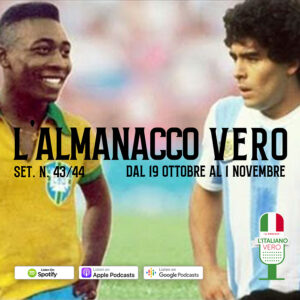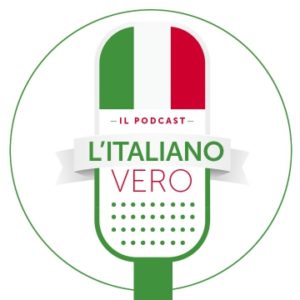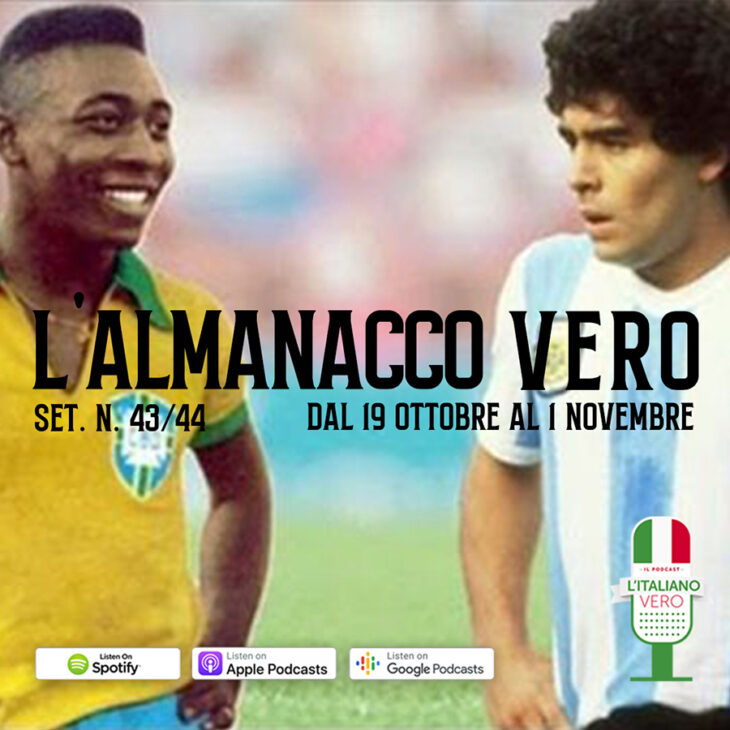
Blog in italiano – tempo di lettura: 4 min
Blog in English – reading time: 4 min
________________
Blog in italiano
Ciao a tutti cari ascoltatori, mentre la situazione intorno a noi si fa purtroppo sempre più preoccupante, il nostro appuntamento con l’almanacco vuole rimanere un momento di leggerezza e divertimento!
Iniziamo con un’informazione di servizio: la notte tra sabato 24 e domenica 25 in tutta l’Unione europea si passa dall’ora legale all’ora solare. L’ora legale è la convenzione di spostare avanti di un’ora le lancette degli orologi di uno Stato per sfruttare meglio l’irradiazione del sole durante il periodo estivo; ha inizio l’ultima domenica di marzo e termina l’ultima domenica di ottobre.
Negli Stati Uniti, invece, l’ora legale termina la prima domenica di novembre, per poi ripartire la seconda domenica di marzo. Il termine ora solare si riferisce all’orario statale usato durante il periodo invernale, per un maggior risparmio energetico. Per noi l’ora solare rappresenta l’arrivo dell’inverno e delle giornate che si accorciano…diventa buio prima! Però guardiamo al lato positivo: si dorme un’ora in più! Mentre quando a fine marzo torna l’ora legale, diventa buio più tardi e ci sembra di andare verso l’estate. Ricordiamoci insomma di tirare indietro l’orologio di un’ora il 24 sera!
Ma passiamo al primo argomento di oggi:
Cubo è felicissimo di celebrare il compleanno di due leggende del calcio: Pelé e Maradona!
23 ottobre del 1940 nasce a Três Corações in Brasile il grande Pelé (80 anni fa), leggenda del calcio, considerato da molti esperti il miglior calciatore di tutti i tempi, in storica competizione con l’altrettanto celebre giocatore argentino Diego Armando Maradona che nasce il 30 ottobre 1960 (60 anni fa) a Lanús.
A Cubo brillano gli occhi mentre racconta dei tre mondiali vinti da Pelé, giocando nel Santos (dal 1956 al 1974) e concludendo poi la carriera nei New York Cosmos nel 1977.
Maradona è famosissimo in Italia, grazie alla sua militanza nella squadra del Napoli, città che lo ha fatto diventare davvero un mito, osannato quasi come un dio!
Attaccante e capitano della Nazionale argentina di calcio, ha vinto il Mondiale del 1986, e ha giocato e segnato in quattro diverse edizioni dei Mondiali.
Cubo ha visto e vi consiglia un docu-film su Netflix che racconta l’ascesa e forse anche un po’ la caduta di questo mito.
30 ottobre 1963 – Nasce il mito della Lamborghini (57 anni fa): Dopo aver raccolto successi e miliardi fabbricando trattori, l’industriale Ferruccio Lamborghini decise di puntare al settore delle auto sportive, lanciando la sfida al “cavallino rampante” di Enzo Ferrari. La molla era scattata dopo che Lamborghini, avendo mosso qualche critica alle “rosse” di Enzo Ferrari, si era sentito rispondere: «Il problema è che tu sei capace a guidare i trattori e non le Ferrari». Per dimostrargli il contrario, Lamborghini fondò appunto la nuova casa automobilistica, presentando per la prima volta al Salone di Torino, il 30 ottobre del 1963 la berlina a due posti 350 GTV.
Come simbolo fu adottato il Toro, in quanto segno zodiacale di Ferruccio Lamborghini, richiamato in tutti i principali modelli della casa bolognese: dalla “Diablo” degli anni Novanta alle “Murciélago” e “Gallardo” del nuovo millennio, fino alla più recente “Huracán” (presentata al salone di Ginevra nel 2014).
30 ottobre 1945 – Nasce Henry Winkler (75 anni fa): Figlio di immigrati tedeschi di origine ebraica, è un attore, regista e produttore cinematografico americano. E’ diventato famoso grazie alla partecipazione alla serie televisiva Happy Days in cui veste i panni di Arthur Fonzarelli, detto Fonzie, e con il quale viene da sempre identificato. Come non ricordare i suoi gesti rituali come lo schiocco di dita per far accorrere splendide ragazze, o il pugno dato al jukebox per azionarlo? Pur comparendo in altri film, Winkler decide di dedicarsi principalmente alla produzione cinematografica e dal 2003 è noto anche come scrittore di libri per ragazzi, grazie alla serie di Hank Zipzer, ragazzino affetto da dislessia (come lo stesso Winkler).
Visto, che non lo abbiamo fatto prima, ricordiamo oggi i 700 anni dalla morte di Dante Alighieri avvenuta nel 1321 e per l’occasione Cubo tira fuori una delle sue immancabili freddure: Cosa sto facendo se dico Dante più Dante?…: Sommo poeta!
Come vi dicevo all’inizio, qui ci divertiamo…e anche per oggi è tutto.
Un caro saluto e a presto!
By Sara🎙🇮🇹
►Ti piace il nostro podcast? sostienici al costo di un caffè
senza di voi non ci sarebbe il podcast:
https://www.patreon.com/litalianoveropodcast
►Trascrizioni episodi:
Trascrizioni episodi
►Contattaci per idee su nuovi episodi:
https://www.litalianovero.it/wp/contatti/
►Facebook:
https://www.facebook.com/litalianoveropodcast/
►Instagram:
https://www.instagram.com/litalianoveropodcast/
►YouTube
https://bit.ly/2zvrbOK
________________
Blog in Inglese
Hello to all dear listeners, while the situation around us unfortunately becomes increasingly worrying, our episode with the almanac is meant to remain a moment of lightness and fun!
Let’s start with a informazione di servizio (service announcement): on the night between Saturday 24th and Sunday 25th throughout the European Union we pass from the ora legale summer time to ora solare winter time. Summer time is the convention of moving the hands of a state’s clock forward by one hour to better exploit the sun’s irradiation during the summer period; it starts on the last Sunday of March and ends on the last Sunday of October.
In the United States, however, daylight saving time ends on the first Sunday in November, and then restarts on the second Sunday in March.
The term solar time refers to the state time used during the winter period, for greater energy savings. For us, solar time represents the arrival of winter and the days that are getting shorter … it gets dark earlier! But let’s look at the positive side: you sleep an hour more!
While when summer time returns at the end of March, it gets dark later and we feel like we are heading towards summer.In short, let’s remember to tirare indietro l’orologio di un’ora (turn back the clock by one hour) on the evening of the 24th!
But let’s move on to today’s first topic:
Cubo is delighted to celebrate the birthday of two soccer legends: Pele and Maradona!
October 23, 1940 the great Pelé was born in Três Corações in Brazil (80 years ago), a football legend, considered by many experts to be the best footballer of all time, in historic competition with the equally famous Argentine player Diego Armando Maradona who was born on 30 October 1960 (60 years ago) in Lanús. Cubo’s eyes sparkle as he tells of the three world championships won by Pele, playing for Santos (from 1956 to 1974) and then ending his career in the New York Cosmos in 1977. Maradona is very famous in Italy, thanks to his militancy in the Napoli team, a city that has made him truly a legend, hailed almost like a god! Forward and captain of the Argentine national football team, he won the 1986 World Cup, and has played and scored in four different editions of the World Cup.
Cube has seen and recommends a docu-film on Netflix that tells the rise and perhaps a little bit of the fall of this legend.
30 October 1963 – The Lamborghini legend is born (57 years ago): After having collected successes and billions by manufacturing tractors, the industrialist Ferruccio Lamborghini decided to focus on the sports car sector, launching the challenge to Enzo Ferrari’s “prancing horse”. The spring was released after Lamborghini, having made some criticisms of Enzo Ferrari’s “reds”, heard the reply: «The problem is that you are able to drive tractors and not Ferraris».
To prove the contrary, Lamborghini founded the new car manufacturer, presenting the two-seater 350 GTV sedan for the first time at the Turin Motor Show on 30 October 1963.
The bull was adopted as the symbol – the Taurus zodiac sign of Ferruccio Lamborghini, recalled in all the main models of the Bolognese house: from the “Diablo” of the nineties to the “Murciélago” and “Gallardo” of the new millennium, up to the more recent “Huracán” “(presented at the Geneva Motor Show in 2014).
October 30, 1945 – Henry Winkler is born (75 years ago): Son of German immigrants of Jewish origin, he is an American actor, director and film producer. He became famous thanks to his participation in the television series Happy Days in which he plays the role of Arthur Fonzarelli, known as Fonzie, and with whom he has always been identified. How can we forget his ritual gestures such as the snap of his fingers to bring beautiful girls to run, or the punch given to the jukebox to operate it? While appearing in other films, Winkler decides to devote himself mainly to film production and since 2003 he is also known as a writer of children’s books, thanks to the series by Hank Zipzer, a boy suffering from dyslexia (like Winkler himself).
Since we have not done it before, today we remember the 700 years since the death of Dante Alighieri in 1321 and for the occasion Cubo brings out one of his inevitable puns: What am I doing if I say Dante plus Dante? …: Sommo poeta (“I sum” poets – a play on words since Dante himself is often called “Sommo Poeta” which means Supreme Poet but the word sommo is also the first person singular conjugation of the verb Sommare – to sum)!
As I said at the beginning, here we have fun … and that’s all for today.
Best wishes and see you soon!
By Kevin (ItalianRocks)
►Did you like the podcast? Please support us at the cost of a coffee
without you there would be no podcast:
https://www.patreon.com/litalianoveropodcast
►Transcripts:
https://www.litalianovero.it/wp/trascrizioni-episodi/
►Contact us for ideas about new podcasts:
https://www.litalianovero.it/wp/contatti/
►Facebook:
https://www.facebook.com/litalianoveropodcast/
►Instagram:
https://www.instagram.com/litalianoveropodcast/
►YouTube
https://bit.ly/2zvrbOK
 Settembre 9, 2019
Settembre 9, 2019 24 min
24 min Luglio 29, 2019
Luglio 29, 2019 13 min
13 min Luglio 15, 2019
Luglio 15, 2019 24 min
24 min Luglio 1, 2019
Luglio 1, 2019 15 min
15 min Giugno 17, 2019
Giugno 17, 2019 21 min
21 min Maggio 30, 2019
Maggio 30, 2019 29 min
29 min Maggio 9, 2019
Maggio 9, 2019 21 min
21 min Aprile 30, 2019
Aprile 30, 2019 28 min
28 min Aprile 17, 2019
Aprile 17, 2019 15 min
15 min Aprile 10, 2019
Aprile 10, 2019 24 min
24 min Aprile 3, 2019
Aprile 3, 2019 24 min
24 min Gennaio 26, 2020
Gennaio 26, 2020 21 min
21 min Gennaio 12, 2020
Gennaio 12, 2020 20 min
20 min Dicembre 29, 2019
Dicembre 29, 2019 24 min
24 min Dicembre 15, 2019
Dicembre 15, 2019 21 min
21 min Dicembre 1, 2019
Dicembre 1, 2019 12 min
12 min Novembre 17, 2019
Novembre 17, 2019 min
min Novembre 3, 2019
Novembre 3, 2019 20 min
20 min Ottobre 20, 2019
Ottobre 20, 2019 14 min
14 min Ottobre 7, 2019
Ottobre 7, 2019 9 min
9 min Settembre 23, 2019
Settembre 23, 2019 33 min
33 min Gennaio 9, 2024
Gennaio 9, 2024 6 min
6 min Dicembre 2, 2022
Dicembre 2, 2022 31 min
31 min Ottobre 8, 2022
Ottobre 8, 2022 18 min
18 min Dicembre 25, 2021
Dicembre 25, 2021 1 min
1 min Settembre 18, 2021
Settembre 18, 2021 21 min
21 min Agosto 14, 2021
Agosto 14, 2021 17 min
17 min Maggio 4, 2020
Maggio 4, 2020 32 min
32 min Aprile 12, 2020
Aprile 12, 2020 41 min
41 min Agosto 26, 2019
Agosto 26, 2019 18 min
18 min Agosto 12, 2019
Agosto 12, 2019 11 min
11 min Giugno 5, 2019
Giugno 5, 2019 9 min
9 min







Leave a Comment